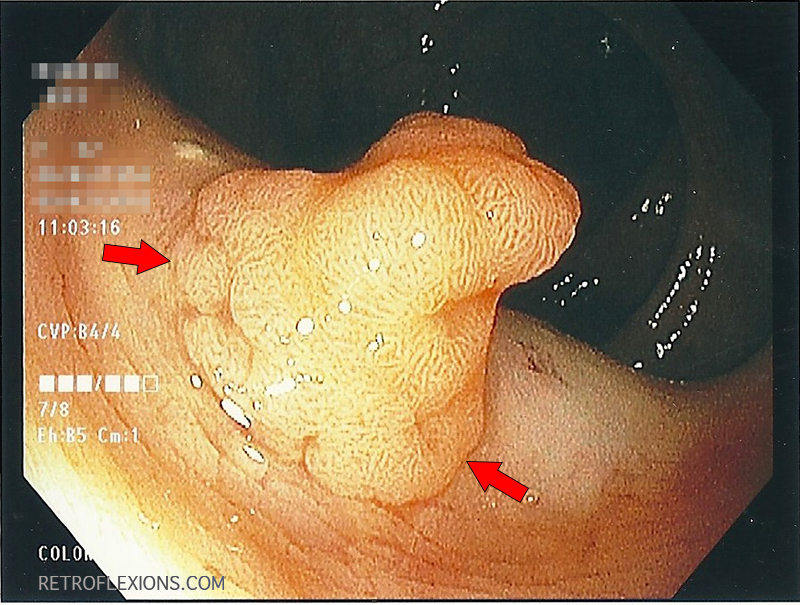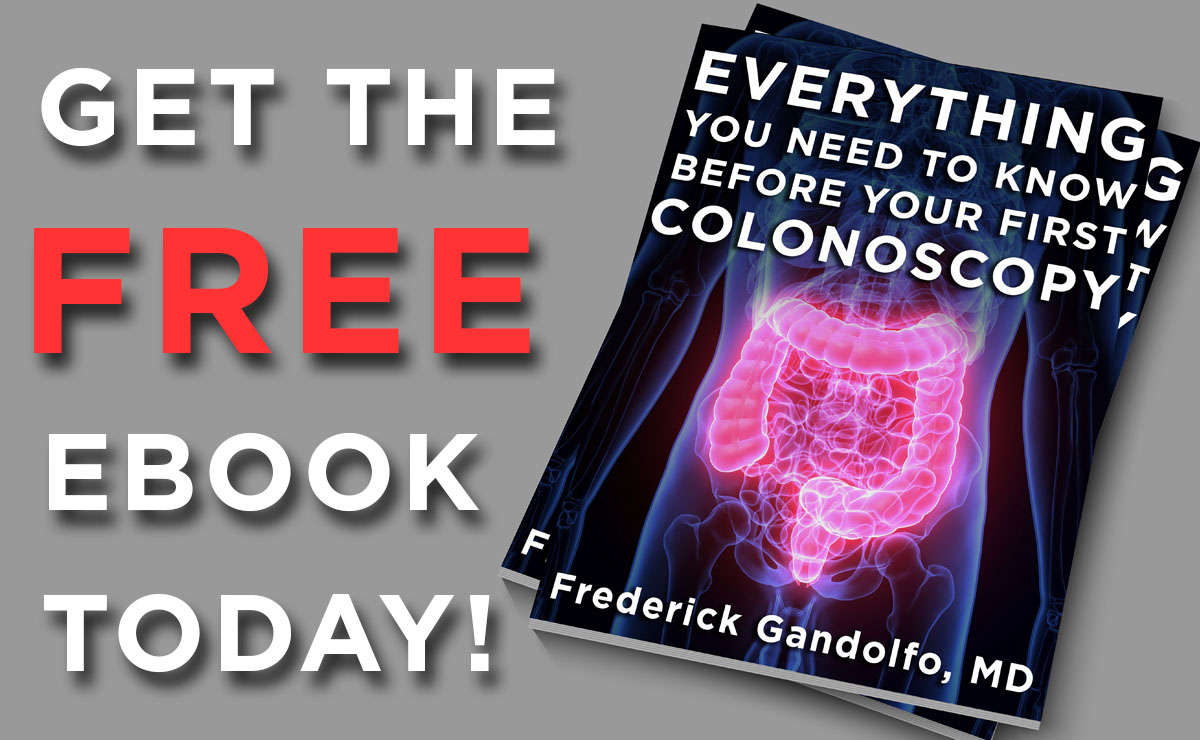Cologuard is a convenient, non-invasive, commercially-available screening test for colorectal cancer. The test is very easy for doctors to order and for patients to complete. There is no bowel prep necessary for this test, and no special diet to follow. The patient doesn’t even need to leave their house to complete the test! Sounds like a pretty good test so far…here’s how it’s done:
Once ordered, the company mails a kit to the patient’s house, and when the urge strikes, the patient places the collection device over the toilet and makes a deposit. There are a few simple preparation steps such as adding in a small amount of liquid that the company provides, and then the entire container is mailed back to the company in the provided packaging. The Cologuard test looks for certain DNA mutations and other abnormalities in the stool to determine if a test is positive or negative. A few weeks later the doctor gets a report indicating the result.
The study that determined the characteristics of the Cologuard test basically performed the test on almost 10,000 patients at average-risk of colon cancer, and then had the patients undergo colonoscopy as the gold-standard test. The results of the Cologuard test were not available to the patients or the endoscopist at the time of the colonoscopy. The major results of this study showed that the Cologuard test had an excellent sensitivity (92%) for detecting colorectal cancer. It was far less sensitive for picking up advanced adenomatous polyps (42%). Remember that sensitivity is the main thing we care about in a screening test: we want the test to miss none of the patients who have the disease. A perfect screening test would have a sensitivity of near 100%, meaning that if 10 people have the disease out of the 1000 people screened, all 10 people would get a “positive” test result.
Sensitivity isn’t everything however…we also want a test that gives a negative result when someone does not have the disease in question. Since a full review of statistics is both 1)boring, and 2)not the point of this article, I will cut right to the chase!
What does a positive Cologuard test mean?
First and foremost, a positive result on the Cologuard test means that you need to have a colonoscopy. Not a virtual colonoscopy, or another stool test, or another scan of some sort…you need a real optical colonoscopy. Only about 4% of people will have cancer found on colonoscopy. 51% will have a precancerous polyp. The rest (45%) will have nothing found on colonoscopy. So to simplify even further, just a little more than half of people with positive results will have something abnormal (cancer or a polyp) found on colonoscopy.
For tips on how to easily handle the bowel prep needed for a colonoscopy, watch my video below!
What does a negative Cologuard test mean?
A negative test means that there is a less than one-percent (0.06% to be exact) chance of having cancer found on colonoscopy. However, about 34% of people with negative tests still have precancerous polyps found on colonoscopy, with the remainder (66%) of people with negative Cologuard results having truly negative colonoscopies.
What is immediately apparent from these numbers is that Cologuard rarely misses cancer. However, if we count polyps as a significant finding, there are plenty of false-positive results (45%) and plenty of false-negatives too (34%). So is Cologuard a good test overall?
I would argue that it is a great test, with one important caveat: Cologuard is not a replacement for colonoscopy! Colonoscopy is still superior to Cologuard in detecting both cancer and polyps. However, as an alternative to colonoscopy for people who either can’t or won’t get a colonoscopy, Cologuard is an excellent choice. In terms of population-based screening, I think it will get a lot more people screened overall (people who would have otherwise not done anything for screening). When compared to not screening at all, Cologuard is a whole lot better than nothing!
References:
Imperiale TF, Ransohoff DF, Itzkowitz SH, et al. Multitarget stool DNA testing for colorectal-cancer screening. N Engl J Med 2014;370:1287-97.
Cologuard website: http://www.cologuardtest.com/current-patients/how-to-use


Jen C
June 28, 2019 at 4:33 PM
My cologuard test was several weeks ago. Have not heard results as yet. I called Cologuard, the CSperson said they could not tell me results. They could mail. She said I would really want to get the results in a hurry and she would email the form to sign and gave a special fax number to send back. This did worry me as why would they do that. It make me think results were positive.
For some reason, my gastro MD has not responded to a phone call request. MD’s very busy in California, service is not that great anymore. Lots of docs moved away because of the fires and low pay by insurance. Makes a patient feel not important or that why should others know my results and I don’t. I probably would not have done this test with the way it is handled by the caregivers.
Jim H
July 20, 2019 at 7:35 PM
I to had a positive reading with my colon guard test and have to wait for 4 weeks to get the colonoscopy. the wait is killing me to find out what is going on.
Ann
November 19, 2019 at 10:02 PM
Did you find out? I did the test from tv my is positive for what I don’t know.
Val D
July 24, 2019 at 12:05 PM
I too had a positive on my Cologuard test and like others feel it was a mistake to use that method, should’ve just followed docs recommendation for the colonoscopy. There is no family history of this disease and so I thought this was a good idea. Now I have to wait weeks to find out what is the cause for the positive results because I can’t get an immediate appt to see specialist that was referred to me by docs office. On top of that I have epilepsy and must have a consult with the gastro doc before they will even schedule the procedure! I am hoping they won’t till me I must have procedure performed without sedation. Ugh.
dom
February 15, 2020 at 11:36 AM
had a cologard which came back positive then had a colonoscopy with three polyps removed. unfortunately the gastro md said he could not get to the very end of the colon (did biopsy a polyp in the ascending colon) and wants me to have a barium enema. this is a horrible procedure and I refused. the gastro said I needed it because the cologard is 85% accurate for cancer according to my dna. there must be a better way.
Frederick Gandolfo, MD
February 16, 2020 at 6:29 AM
You should really have the rest of the colon examined. You can always consider another colonoscopy attempt…sometimes a different doctor or different scope technique is what is needed to get to the cecum! Or consider a virtual colonoscopy. Check out the ebook to see the different options out there.
Aerin
June 15, 2020 at 10:44 PM
Great video, but if I only had to drink two 16-ounce doses, that would be fantastic! My prep is PEG mixed with Hydralyte, for a total of 96 ounces! Today, I drank 64 ounces in the recommended two hours. I used all the tricks to make it more palatable, and got it all down. But had severe chills (from drinking so much cold liquid), and threw up after I was finished. Now I feel like absolute crap, and I have to get up in the morning and drink another 32 ounces! I had a positive Cologuard test, so I really need to do this.